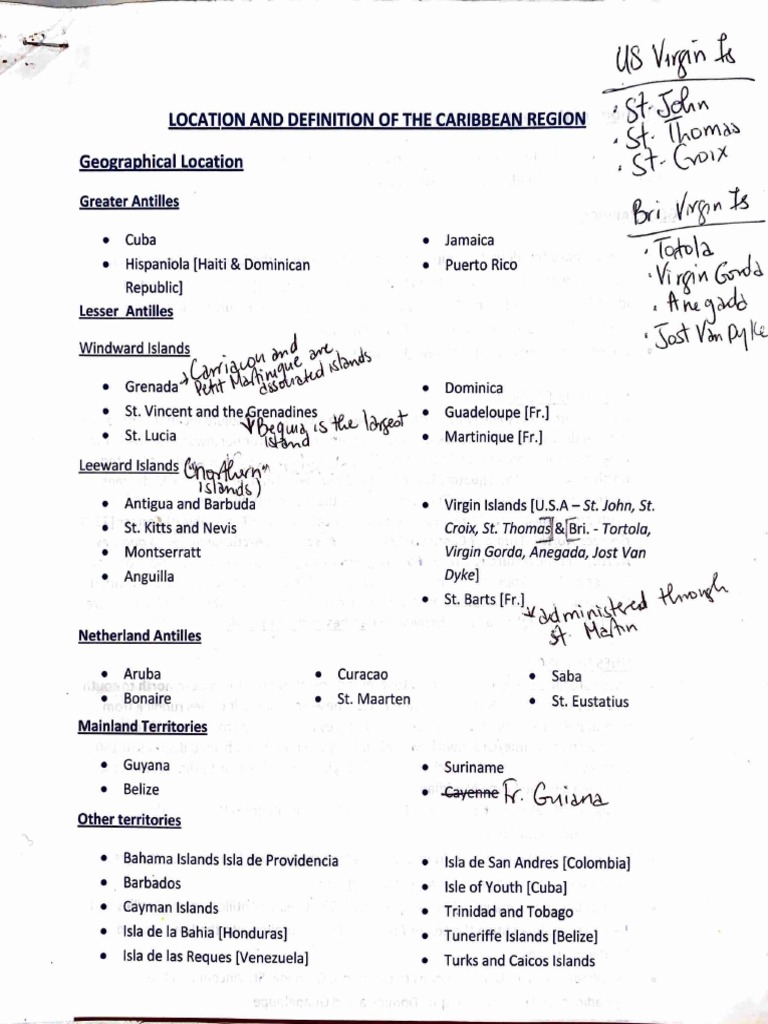The Caribbean region, an enchanting collection of islands and coastal territories, evokes images of turquoise waters, swaying palms, and vibrant culture. Yet, what exactly constitutes a “Caribbean country”? Understanding this term requires delving into the geographical, political, and cultural dimensions of the Caribbean, all while appreciating the spiritual significance that this region holds for many Christians. To explore what defines a Caribbean country, we must first consider the geographical boundaries, historical context, and the socio-political fabric that weaves these islands together.
The Caribbean is marked by a distinct geographical identity, consisting of more than 7,000 islands, islets, reefs, and cays, which are primarily situated in the Caribbean Sea and the Atlantic Ocean. This configuration creates a unique archipelago that extends from the Bahamas in the north to Trinidad and Tobago in the south, and from Cuba in the west to Barbados in the east. However, a playful question arises: How can we classify the myriad islands when not all are sovereign nations? While some are independent countries, others are territories belonging to larger nations, such as the United States, France, and the Netherlands.
In a broad sense, a Caribbean country can be defined as a sovereign nation or dependent territory that lies within the boundaries of the Caribbean geography. This perspective incorporates historical factors, such as colonial legacies that influence the governance of these territories. For example, countries like Jamaica, Haiti, and the Dominican Republic are fully recognized sovereign nations, while territories like Puerto Rico and the Virgin Islands possess varying degrees of autonomy, often still tied politically and economically to their parent nations.
Despite the political disparities, the cultural ties among the Caribbean nations are profound. A rich tapestry of indigenous, African, European, and Asian influences converge, creating a mosaic of languages, religions, and traditions. The predominant religions in the Caribbean include Christianity, particularly Roman Catholicism and Protestantism, which have shaped substantial societal values and cultural practices across the islands. The question then emerges: How does faith intertwine with national identity in the Caribbean?
Christianity has profoundly influenced the ethical and moral frameworks within Caribbean societies. Many of the islands boast a historical narrative steeped in missionary activities that sought to evangelize and educate indigenous populations. As such, the Christian faith is interwoven with the region’s history, contributing to both cultural identity and social cohesion. Churches often serve as focal points for community gatherings, reinforcing bonds that unite people across diverse backgrounds.
When compiling a list of Caribbean countries, one may categorize the region based on their political status. For clarity, here is a list that distinguishes independent nations from territories:
- Independent Caribbean Countries:
- Antigua and Barbuda
- Bahamas
- Barbados
- Cuba
- Dominica
- Dominican Republic
- Grenada
- Haiti
- Jamaica
- Saint Kitts and Nevis
- Saint Lucia
- Saint Vincent and the Grenadines
- Trinidad and Tobago
- Territories and Dependencies:
- Puerto Rico (U.S. territory)
- U.S. Virgin Islands (U.S. territory)
- British Virgin Islands
- Martinique (French territory)
- Guadeloupe (French territory)
- Aruba (Dutch territory)
- Curaçao (Dutch territory)
- Saint Martin (Dutch territory)
This diverse collection of nations and territories showcases the complex nature of Caribbean identity. The interaction between Independence and dependence creates a compelling narrative, which often poses challenges and opportunities for these countries. For instance, how do dependent territories forge unique cultural identities while still grappling with the influence of their more dominant overlords? This question reflects the ongoing struggle for cultural autonomy while maintaining close ties that can either inhibit or bolster a nation’s spirit.
In contemplating the Caribbean’s identity from a Christian perspective, one cannot overlook the role that faith plays amidst the complexities of nationhood. Believers often seek to intertwine their spiritual journeys with their national identities, finding strength in both to navigate the socio-political landscapes of their respective countries. Churches act as sanctuaries that propagate messages of community, hope, and resilience—underscoring that faith can indeed flourish in all circumstances.
The Caribbean’s vibrant diversity encompasses the beauty and challenges inherent in being a Caribbean country. Whether one is a proud citizen of an independent nation or a resident of a dependent territory, the essence of Caribbean identity is enriched by the interplay of geography, history, and, uniquely, a shared spiritual heritage. Ultimately, the question remains: How will the Caribbean continue to evolve, and what role will faith play in shaping its future?
As the Caribbean grapples with modernity, climate change, and globalization, the ties that bind these nations will be tested. However, through the lens of faith and solidarity, one can anticipate that the spirit of the Caribbean will persist in its journey towards enlightenment, unity, and a vibrant future grounded in the richness of its past.



